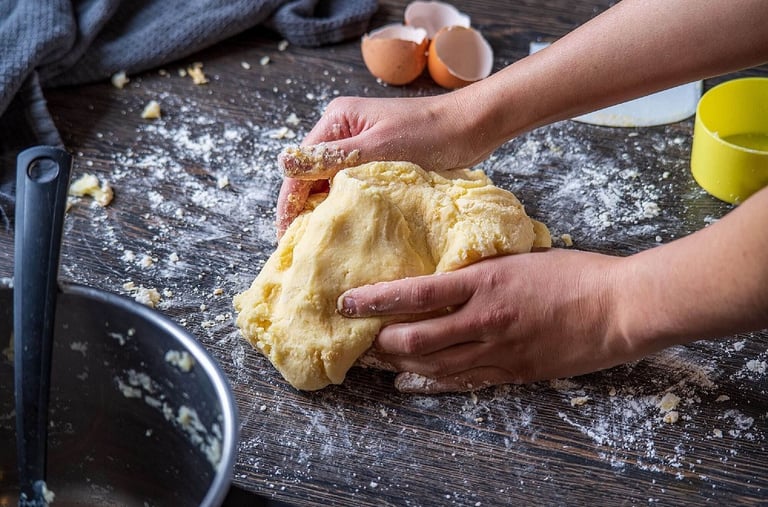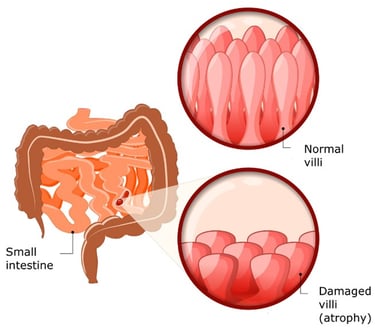What about celiac disease?


Gluten intolerance is akin to an allergy, since it involves the immune system
Today, it affects between 1 and 2% of the population, and there appears to be a genetic predisposition. However, responsibility for this disease lies with man, who has denatured cereals by selecting and crossing the most productive grains. Our modern cereals have undergone many genetic transformations. More recently, modifications have been made directly to the genome of certain cereals, in particular wheat and maize.
Gluten is a substance formed during the bread-making process, in the presence of the proteins glutenin and gliadin and water. When suffering from celiac disease, gluten ingestion causes the synthesis of the protein zonulin, which increases intestinal permeability. Molecules of intestinal bacteria can then pass into the bloodstream, triggering an immune response. The resulting inflammation destroys the intestinal villi, reducing the surface area for nutrient absorption and thus the quantity of nutrients absorbed:
designua/stock.adobe.com
The consequences are quite serious: in addition to digestive problems, nutrient deficiency can lead to anemia, osteoporosis, neurological disorders, bleeding mucous membranes, and so on. In a small number of cases, there may even be liver damage. In children, a break in the growth curve should suggest celiac disease. The diagnosis can be confirmed by measuring anti-transglutaminase IgA levels in the blood and, if positive, a biopsy of the duodenal mucosa.
Gluten is formed in the bread-making process of almost all cereals and is therefore found, in different proportions depending on the cereal, in bread, pasta, cakes, cookies, etc. made with oat, wheat, spelt, wheat, kamut, khorasan, barley, small spelt and rye flour. Gluten-free cereals include amaranth, fonio, quinoa, maize, cassava, millet, rice, buckwheat, sorghum, tapioca (bitter cassava) and teff.
In the case of proven celiac disease, gluten-containing flours must be completely stopped for life. It seems that only then can the disease be cured, with regrowth of the intestinal villi.
However, if you don't have celiac disease but still wish to avoid gluten to reduce the intestinal inflammation it causes in everyone, it is advisable to reduce gluten intake without eliminating it altogether. Indeed, if you have eliminated gluten for several months, accidental (e.g. in a restaurant) or deliberate ingestion of gluten flour presents a high risk of developing the disease!
To find out more, also read these articles:
About food allergies: https://isabellemaesnutrition.com/en/food-allergies
Bread-making picture by Anton


